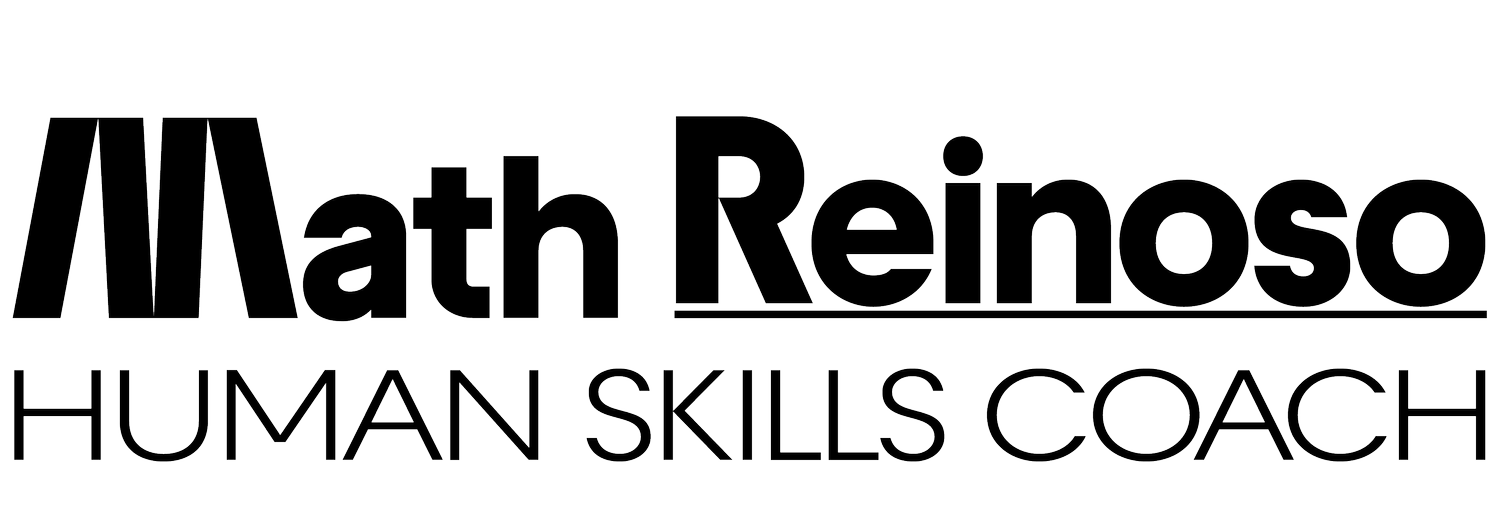Unlocking human potential
through action since 2016...
Like many coaches, my journey started with a burnout—or two, in my case. At the time, I didn’t fully understand what wasn’t working, only that something needed to change. I spent years exploring, researching, and trying different approaches to figure out how to move forward. It wasn’t easy, but I learned that progress starts with a willingness to act, even when the path ahead isn’t clear. That willingness to take small, meaningful steps eventually became the foundation of my work. Today, I bring that same determination to my clients, helping them identify what matters most and find practical ways to move toward it.
For the past eight years, I’ve been helping individuals and teams develop the skills they need to thrive. Along the way, I’ve had the chance to work with a wide range of professionals, from emerging leaders to seasoned executives, across industries and cultures. Since 2018, I’ve also been teaching Leadership and Behavioral Economics at Paris-Dauphine University. This role allows me to deepen my understanding of human behavior and decision-making, combining research with practical insights I bring directly to my clients.
I’ve always been driven by curiosity, which has led me to explore a wide range of interests, from studying neuroscience to becoming a certified yoga instructor. For me, it’s less about mastering any one discipline and more about expanding the toolbox I can draw from. Whether it’s through yoga or behavioral science, every new perspective helps me approach challenges in unique ways.
This breadth of interests is what shapes my approach. I don’t believe in one-size-fits-all solutions. Every person and every team connects differently with ideas, and part of my role is finding the right approach for the right situation. Whether it’s helping someone navigate a tough decision, guiding a team through conflict, or sharing ideas in a workshop, my goal is always the same: to unlock potential and turn it into meaningful, lasting change.
So, how do we turn insight into lasting changes?
Through repeated actions.
In the world of technical skills, the path to success is clear: learn the method, apply it, and achieve the result. That’s how most of us have been trained, in school and throughout our professional lives. But human skills don’t work that way. There’s no single formula, no universal 'right' way to lead, communicate, or connect. Developing these skills is deeply personal because they are rooted in who you are, shaped by your experiences, and influenced by the patterns that guide your behavior.
Recognizing these patterns is the first step toward meaningful change. You’re not starting from scratch; you’re building on the foundations of who you already are. Mastering human skills isn’t about following someone else’s script. It’s about crafting your own. Whether it’s giving feedback, managing stress, or navigating tough conversations, the approach that works for you should reflect your individuality and the context you’re in.
But here’s the challenge: change is hard. Identifying your patterns is important, but lasting growth comes from turning knowledge into action and practicing until new habits take root. That’s where I come in: to help you uncover the patterns shaping your actions, build your personal toolbox, and develop the skills that create meaningful, lasting transformation.
Every session I lead is built on the foundation of neuroscience and behavioral economics, bridging the gap between theory and practice. The tools and strategies I share are grounded in proven research, offering practical solutions you can trust. Whether it’s understanding the psychology of stress, improving team communication, or exploring decision-making under pressure, my approach ensures that what you learn is actionable and designed for the real world.
Rooted in Science
No two challenges are the same, and neither are my solutions. I start every session by understanding your unique goals, context, and the patterns that influence your behavior. This ensures that the experience is personal, relevant, and impactful. From adapting a keynote to your industry to designing a workshop for your team’s dynamics or helping a group navigate a specific challenge, every interaction is crafted with your needs in mind. The result is a session that feels like it was made just for you.
Tailored to You
Knowledge alone isn’t enough. My focus is always on turning insight into action. Every session ends with clear, practical tools you can use immediately, whether you’re leading a team, navigating a conflict, or building a new habit. Real transformation happens when learning moves beyond the session and into everyday practice. My goal is to equip you with the confidence and skills to approach challenges differently and make meaningful progress over time.
Built for Action
How Does Our Brain Learn?
Think back to when you first learned how to drive or started speaking a new language. At first, every step required enormous effort. But over time, it became easier and easier—until one day, you could do it without even thinking.
To reach that point, your brain relied on two key processes, the same ones it uses to learn any new skill. First, you created new neural pathways. These connections allowed you to understand what to do in specific situations, like pressing the clutch pedal when the engine revs too high before changing gears. This stage is all about understanding and establishing the basics.
Once those pathways were formed, the next step was repetition. By practicing the same actions over and over, your brain started to recognize that these pathways were important and would be used frequently. This triggered a process called myelination, where the brain wraps those pathways in a substance called myelin. Myelin acts like insulation on electrical wires, making signals travel faster and more efficiently. That’s how a skill becomes second nature.
When it comes to learning, focusing on fewer skills with consistent application is the key. Not only will you remember them better, but you’ll also be able to use them more naturally. To paraphrase Whitney Houston, when it comes to learning, better doing it “step by step.”

